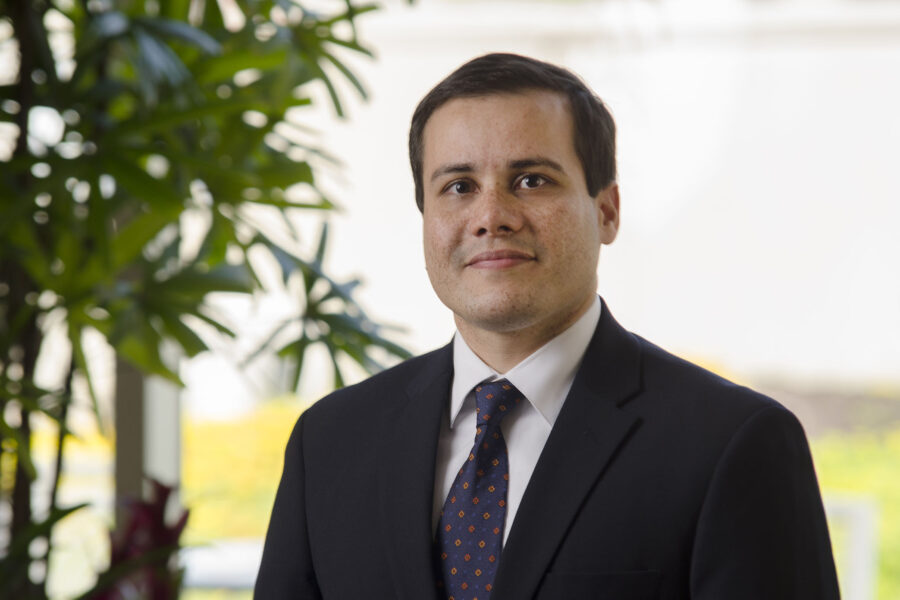Rural EMTs and others will get an improved education in how to recognize and treat stroke victims as part of a new program funded by a donation from the Herman Foundation.
“We’re trying to help educate voluntary EMS crews in terms of stroke recognition,” said Marco Gonzalez-Castellon, MD. “I realized the biggest issue was that there was lack of education in the rural crews to recognize stroke in less-than-ideal situations.”
Dr. Gonzalez-Castellon is an associate professor in the UNMC Department of Neurological Sciences, program director of the Vascular Neurology Fellowship (the training program for neurologists) and medical director of the Nebraska Medicine Telestroke Program.
In 2015, when he joined UNMC, rural Nebraska had very few neurologists, he said, which meant stroke patients were not receiving the latest or best care. So Dr. Gonzalez-Castellon developed the Telestroke Program, which allows doctors to treat patients remotely.
“Within five minutes, we can be there assessing the patient and reviewing a head scan,” he said. “That has improved our treatment numbers. If we can treat the patient early enough, we are going to reduce disability, mortality or other long term stroke complications.”
Many stroke victims now can fully recover, thanks to new treatments, Dr. Gonzalez-Castellon said. Unfortunately, because of a lack of knowledge and training, patients in rural areas often don’t receive the latest treatment for stroke.
Stroke is common, but rural ERs see a few patients per year, Dr. Gonzalez-Castellon said. A rural emergency department may see 10 to 12 patients a year, and some of these patients are eligible for the latest stroke treatments. Due to the low frequency, it is difficult for volunteer EMTs or others to recognize stroke or be familiar with the latest treatment.
“With this, we hope we can reduce the chance of missing a stroke,” Dr. Gonzalez-Castellon said. “Most of the crews outside Omaha are volunteers. These are folks who live in the community who sign up to be EMTs, but they have other jobs. We cannot ask more of them. That’s what we’re trying to achieve with this grant.”
Dr. Gonzalez-Castellon and others will travel to an estimated 10 rural emergency departments this summer with SIM-Nebraska’s simulation trucks and manikin. Training will consist of classroom work and simulated emergencies.
“It’s a win-win for everyone,” he said. “It’ s a win for the population because they have a better trained crew, and it’s a win for the university because we get out there, and people can see the university wants to improve the health and education of the state. It’s a great opportunity.”

Congratulations on a well thought-out and needed initiative
Congratulations! Great statewide outreach!
Congratulations on this much needed project, Dr. Gonzalez!
The education utilizing the mobile simulation labs will greatly improve stroke education for first responders across the state!
Dr Gonzales-Castellon and team, This is a much needed initiative for rural Nebraska. What a tremendous program . Kudos to you and all your team.
This is exceptional. Congratulations and thank you! I’m proud to work with you here.
Great outreach and partnership!